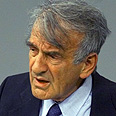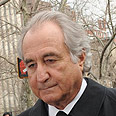

Nobel Peace Prize winner Elie Wiesel said Thursday he was not bitter about losing his personal investments and millions of dollars of his foundation's money in Bernie Madoff's Ponzi scheme.
He said he was grateful for hundreds of donations that have helped his Foundation for Humanity stay active. The foundation promotes tolerance and equality to youth.
"It was heartwarming to see the response and, of course, we have decided not to give in," Wiesel told The Associated Press. "I decided I will not to let anyone destroy what I have done with my life ... I am not bitter."
Wiesel, a Holocaust survivor and the author of the memoir "Night," said he does not expect to recover any of the lost money.
Wiesel, whose father was Hungarian, was visiting Hungary for the first time since the Holocaust, invited by the Chabad Lubavitch movement of Orthodox Jews.
Wiesel met with Hungarian President Laszlo Solyom and Prime Minister Gordon Bajnai and urged Hungary to legally ban Holocaust denial.
Several attempts in the past few years to toughen laws against hate speech and a push by the government in April to amend the Constitution to make Holocaust denial a crime have failed in parliament or have been rejected by the courts, mainly because of fears about restricting free speech.
Wiesel also said he had received a pledge from Bajnai to allow access to historical archives thought to include lists of the Hungarian Jews who were deported to Auschwitz during World War II.
"I would like to see the list about the Jews from Maramarosziget, my hometown," Wiesel said, using the Hungarian name of Sighetu Marmatie, a Romanian town that was part of Hungary until World War I and again, for a few years, in the 1940s. "The list must be somewhere in Budapest."
Some 550,000 Hungarian Jews were killed during the Holocaust.















